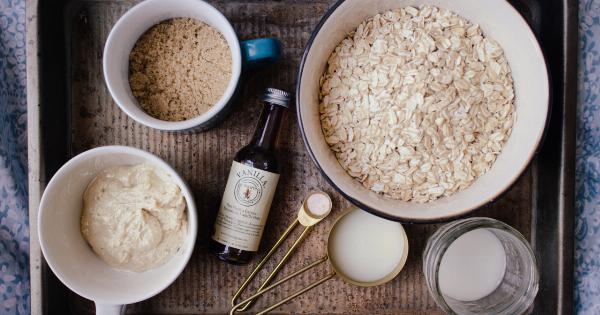Sugar has been a staple in our diets for centuries. From the added sugars in our favorite desserts to the natural sugars in fruits, it’s almost impossible to escape.
However, in recent years, there has been growing concern about the link between sugar consumption and cancer. In this article, we will explore the research surrounding sugar and its potential impact on our health, particularly its connection to cancer.
The Sugar-Cancer Connection
While the relationship between sugar and cancer is complex, numerous studies have suggested that a high intake of sugar could contribute to the development and progression of cancer.
One proposed mechanism is that excessive sugar consumption leads to alterations in hormone levels, specifically insulin and insulin-like growth factor-1 (IGF-1), both of which have been linked to cancer growth.
Insulin, IGF-1, and Cancer
Insulin is a hormone that regulates blood sugar levels. When we consume high amounts of sugar, our blood sugar levels spike, leading to increased insulin production.
Some studies have found that elevated insulin levels may promote cancer cell growth and spread, especially in hormone-related cancers such as breast and prostate cancer. Similarly, IGF-1, which is often elevated in individuals with insulin resistance or obesity, has been associated with an increased risk of cancer.
Inflammation and Cancer
Another potential link between sugar and cancer is chronic inflammation. Excessive sugar consumption can lead to low-grade inflammation in the body, which, over time, may contribute to the development of cancer.
Inflammation is a normal immune response to injury or infection. However, when it becomes chronic, it can lead to DNA damage, cell mutation, and the promotion of tumor growth.
Obesity and Cancer Risk
It is well-established that excessive sugar consumption can contribute to weight gain and obesity. Obesity, in turn, is associated with an increased risk of several types of cancer, including breast, colorectal, and pancreatic cancer.
While the exact mechanisms linking obesity and cancer are not fully understood, chronic inflammation, insulin resistance, and altered hormone levels are believed to play a role.
Specific Types of Cancer
Research has revealed potential associations between sugar consumption and certain types of cancer:.
1. Breast Cancer
Several studies suggest that diets high in refined sugars, such as those found in sugary beverages and processed foods, may increase the risk of breast cancer. This is likely due to the impact of sugar on hormonal regulation and inflammation.
2. Colorectal Cancer
High sugar intake has been linked to an increased risk of colorectal cancer, potentially due to the pro-inflammatory effects of sugar and its role in promoting insulin resistance and obesity.
3. Pancreatic Cancer
Sugar-sweetened beverages have been associated with a higher risk of developing pancreatic cancer. The high sugar content in these drinks may contribute to insulin resistance and chronic inflammation, both of which can promote cancer development.
4. Prostate Cancer
Some studies suggest that increased sugar consumption, particularly in the form of processed foods and sugary drinks, may be associated with an increased risk of aggressive prostate cancer.
Again, the impact of sugar on hormone levels and inflammation is believed to be a contributing factor.
Controlling Your Sugar Intake
While more research is needed to fully understand the relationship between sugar and cancer, it is clear that reducing sugar consumption can have numerous health benefits. Here are a few tips to help you control your sugar intake:.
1. Read Labels
Be mindful of added sugars when purchasing packaged foods. Ingredients such as high-fructose corn syrup, sucrose, and dextrose indicate the presence of added sugars.
2. Choose Whole Foods
Opt for whole, unprocessed foods whenever possible. Fruits, vegetables, whole grains, and lean proteins are all great choices that can help reduce your sugar intake.
3. Limit Sugary Drinks
Avoid or minimize the consumption of sugary beverages such as soda, fruit juices, and energy drinks. These are often loaded with added sugars and provide little nutritional value.
4. Opt for Natural Sweeteners
If you have a sweet tooth, consider using natural sweeteners like honey, maple syrup, or stevia instead of refined sugars. While these should still be consumed in moderation, they offer a healthier alternative to processed sugars.
Conclusion
The research on the connection between sugar and cancer is still ongoing, but the evidence suggests that excessive sugar consumption may play a role in the development and progression of certain types of cancer.
By reducing your intake of added sugars and opting for a balanced, whole-food diet, you can minimize your risk and improve your overall health.

























